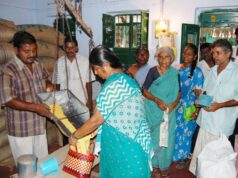A few days ago the World Bank released its annual ready reckoner on ease of doing business in India and the world. India jumped 23 spots on the rankings, from 100 in 2017 to 77 this year. No doubt this is a positive sign, but it is far from the last word on our economic health or the state of our business environment. To think otherwise is a mistake. The Indian government is a complex beast. Variations across states in machinery, process and rules abound. Painting the country in broad strokes gives us a limited if useful picture of the efforts and success in creating an enabling environment for enterprise.
Prior to the release of the Bank’s report, the Department of Industrial Policy and Promotion (DIPP) released its annual assessment of state-level progress on the business reforms action plan. In addition to these two progress measures, a few research institutions also attempted to triangulate the World Bank’s previous appraisal of India’s business environment.
Despite different surveys and reports, there is no deep understanding of the substantive and qualitative changes to the regulatory framework governing enterprises across different states. Better performing states such as Andhra Pradesh, Telangana, Gujarat, Maharashtra and Tamil Nadu have provided details about individual reform claims. But in the case of most states including Delhi we have little to go on except ticks on checkboxes.
The World Bank itself admits that implementation gaps may exist as sometimes reforms “on paper do not translate into reforms on the ground” or “reforms in one area are contradicted by actions in other areas” or “regulatory service delivery is good for some but not for others”. Unless the implementation status of reforms is thoroughly investigated at the state level, we will not be able to fix the red flags on performance that the Bank’s report or enterprise surveys raise.
An example of this is the setting up of commercial courts or benches at the district and high court levels across the country following the Commercial Courts Act 2015. The truth of the matter is these hardly qualify as specialised courts, since there is neither a dedicated roster of judges to hear commercial cases nor is there dedicated courtroom time for commercial disputes.
Other examples are efforts to conscribe inspections authorities under norms of transparency and due process. On paper many state governments have claimed to regularise the inspections processes to enforce environmental regulations and labour laws. Reform claims include incorporating risk-based inspections and application of standard operating procedures. Yet, in the case of most states, the formula for selecting enterprises for inspections or calculating risk, or the extent to which violations are brought to book are unclear.
Separately, the regulatory challenges faced by ubiquitous urban services provided by micro, small and medium enterprises remain unaccounted for. Government of India and state governments have initiated business environment reforms with the goal of drawing in large-scale investments in industrial enterprises for the Make in India initiative. Reports and surveys on the ease of doing business in India are studying only certain types of businesses: larger (number of employees or income), likely to have access to expert help for registration and compliance, or engaged in manufacturing activities. But the extent to which operating environment has improved for traditional retail service enterprises has not featured on any one’s agenda.
For example, in the last few years, restaurants in densely populated market areas have been sealed repeatedly for flouting shape-shifting rules. Restaurateurs stepping up to meet the demand for alcohol service face challenges on account of cultural policing masquerading as policy. News of legal stand-offs between restaurateurs and inspectors, excise officers, and police is commonplace. Similarly, since 2014, the country has been locked in a tough conversation about the production, trade and sale of meat, particularly cattle meat. With oft-changing rules, unclear objectives and absent due process, meat entrepreneurs supplying for their livelihood are under existential threat.
The Bank’s Ease of Doing Business report does not highlight issues that affect small-scale retail enterprises, particularly those yet to be registered or formalised. These issues represent essential and non-trivial corrections that affect a bulk of self-employed entrepreneurs and corner shops.
Finally, a clear understanding of the next granular steps in the reform process is missing. THis is particularly true for reforms in rules and enforcement at the intersection between central, state and municipal level powers and authority. The government has not made any higher level recommendations on emerging industries.
For example, waste management in India is largely run through informal enterprises. But registration rules, procedures and costs to set up e-waste enterprises make it expensive and challenging to move away from informality. Given the nexus between municipal authorities and informal enterprises in the sector, broad strokes study of ease of doing business will likely not alert us to reform needs in areas like this.
This year my colleagues and I at the Centre for Civil Society undertook a deep dive into the realities of Doing Business in Delhi to address some of these blind spots. It turns out, that in Delhi most of the claims on reforms are window-dressing. The corner shop small entrepreneur is still choking under the weight of the license-permit-inspector raj and no substantial strides have been made on contract enforcement. In Delhi, the state government is still in an ‘offering concessions’ mode. Instead of engaging in a higher order discussion on principles-based regulation, the state government continues to extensively prescribe specifications for enterprises, and proscribe behaviour based on anachronistic cultural norms.
In 2015, DIPP and NITI together set out the Business Reforms Action Plan process, a praise worthy effort to encourage pan-state movement towards the true north of economic freedom. The effort has no doubt borne fruit as India’s dramatic rise on the Doing Business rankings show.
But to put things in perspective, none of the recommendations in the reforms plan is supported by a publicly available background paper, nor has there been any systematic discussion of whether the measures proposed are sensible principled applications. There is also no discussion of the costs of not implementing the action items or the relative merits of the approaches taken by different states on their reform paths.
For the future, there needs to be a systematic discussion about and watch over the reforms process at each level of government. Besides indices such as a the Bank’s Doing Business rankings, we need to understand each reform action item, particularly those remain unmeasured, in our quest for a freer business environment.
Read more: https://spontaneousorder.in/unease-of-opening-restaurant/
Post Disclaimer
The opinions expressed in this essay are those of the authors. They do not purport to reflect the opinions or views of CCS.


